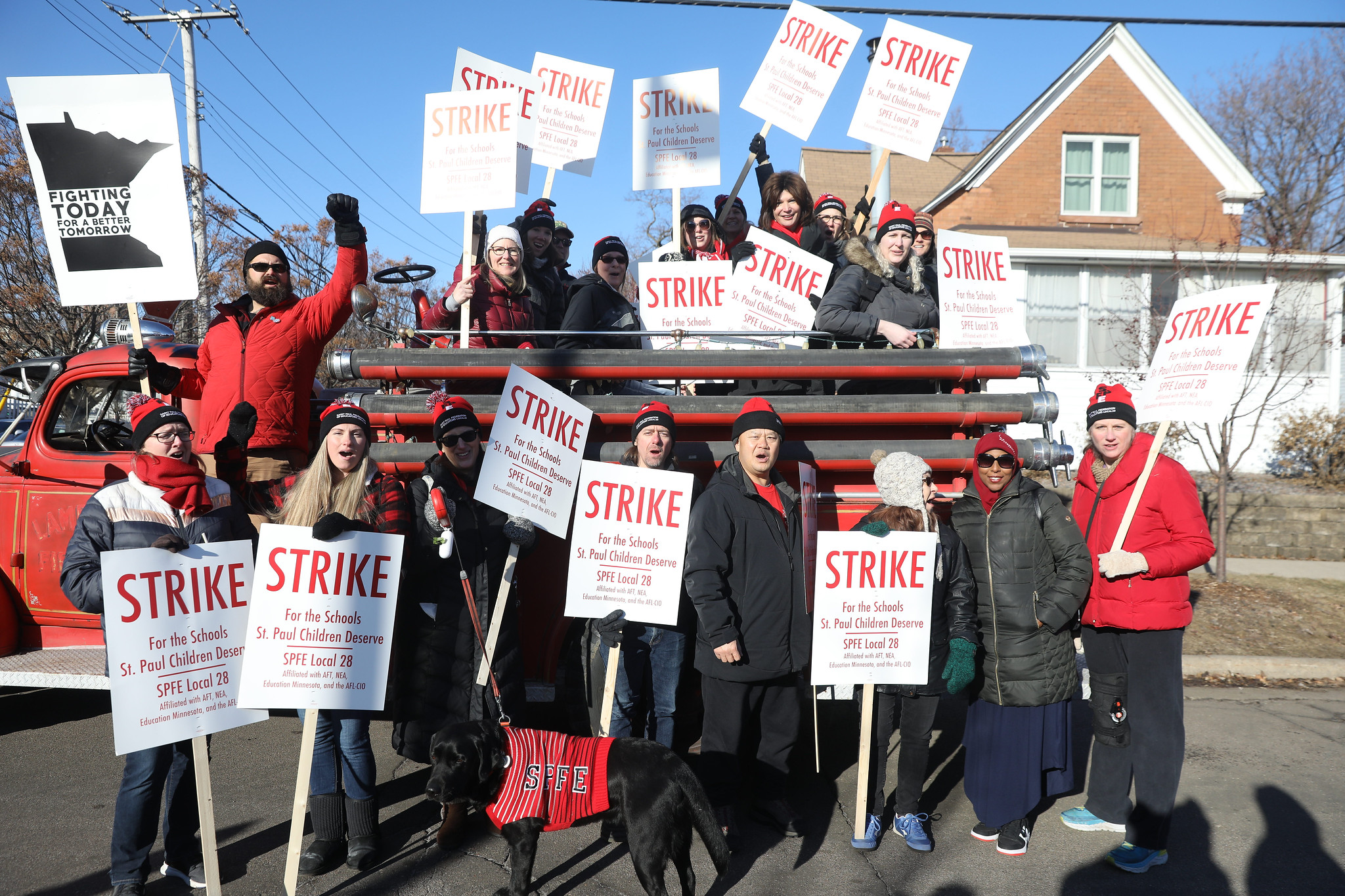 [Editor's note: On Friday, March 13, St. Paul educators ended their strike. Their tentative agreement gives students more social workers, nurses, intervention specialists, psychologists, and multilingual staff. It also expands restorative practices to help end the school-to-prison pipeline, and provides more manageable workloads so that students with special needs can get more attention. And it includes wage increases, building-based substitute educators for schools that struggle to find substitutes, and a moratorium on new charter schools. Educators would have fought longer, except for concerns over students' and staff's health during the current pandemic, said SPFE President Nick Faber. "“Still, this strike demonstrated the power educators have when they use their collective voice.”]
[Editor's note: On Friday, March 13, St. Paul educators ended their strike. Their tentative agreement gives students more social workers, nurses, intervention specialists, psychologists, and multilingual staff. It also expands restorative practices to help end the school-to-prison pipeline, and provides more manageable workloads so that students with special needs can get more attention. And it includes wage increases, building-based substitute educators for schools that struggle to find substitutes, and a moratorium on new charter schools. Educators would have fought longer, except for concerns over students' and staff's health during the current pandemic, said SPFE President Nick Faber. "“Still, this strike demonstrated the power educators have when they use their collective voice.”]
“We sent up red flags—large, large red flags—and were completely ignored,” says one St. Paul, Minnesota, educator. Meanwhile, “there [are] multiple children in each classroom in desperate need of extra time, attention, and care.”
With these children and their critical needs in mind, St. Paul educators went on strike on Tuesday for the first time since 1946. After nine months at the bargaining table, school district officials have refused to move on issues, like increasing mental-health supports, that St. Paul educators and parents believe essential to the health and success of their children.
“District leaders don’t understand the urgency of these issues. Educators do—we see them every day in our schools. Our students can’t wait any longer,” said Nick Faber, president of the St. Paul Federation of Educators (SPFE).
From the beginning, SPFE’s top priorities have been to secure more mental-health supports in every school, more multi-lingual staff to make children and families feel welcome, additional educators to work with students with special needs, and an expansion of restorative practices.
The last proposal that SPFE made to district officials on Monday night accounts for just 3.4 percent of the district’s $750 million budget—but it prioritizes the needs of students and families, while respecting the work of St. Paul educators.
“It hurts us when our kids need something. We are compelled to give them what they need to succeed,” said NEA President Lily Eskelsen García to rallying St. Paul educators Tuesday. “So, no, you are not asking for too much, to demand that this administration finally give you what you need to do your jobs and to create the schools your students deserve.”
By taking their concerns to the picket line, St. Paul educators are refusing to let kids fall through the cracks, or to continue a status quo that perpetuates racial inequities, they say. They would rather be in school today—a strike is a last-resort, short-term action that aims to force school officials to address the long-term issues of students.
St. Paul educators have statewide support: “Educators all over Minnesota share the same frustrations as our colleagues in St. Paul. We don't have enough resources to do our jobs as we know they need to be done -- not for students with special needs, not for students living with trauma, not for students learning English and not for students who need one-on-one attention,” said Denise Specht, president of Education Minnesota.
“We stand with the educators of SPFE in their strike for what their students deserve and we’re ready to fight for full funding from Saint Paul to Stillwater to East Grand Forks and every Minnesota school in between.”






